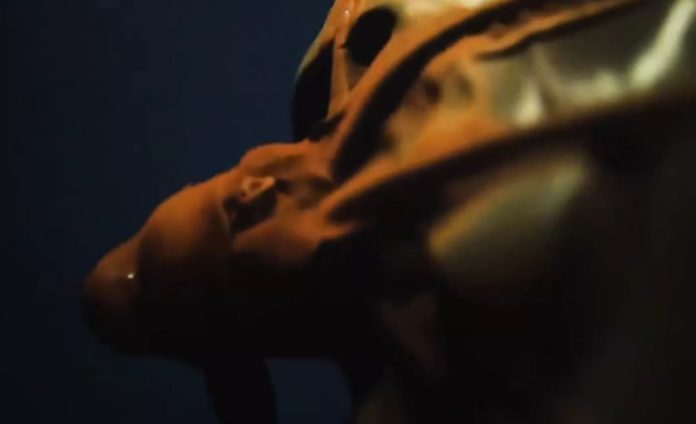Scientists have apparently managed to find the missing link in the evolution of the mysterious vampire squid, a mollusk whose characteristics have long puzzled specialists.
A fossil found in Hungary originally believed to belong to another animal, maybe the mortal remains of a member of the vampire squid family, reveals new research published in the scientific journal Communications Biology.
The fossil, which is estimated to be between 23 and 34 million years old, is the first find to link Vampyroteuthis infernalis, known as the infernal vampire squid, to its distant relatives, who lived between 90 and 150 million years ago in the Cretaceous.
- Does This Mean We Stopped Being Animal and Started Being Human Due to ‘Copy Paste’ Errors?
- The One Lifestyle Choice That Could Reduce Your Heart Disease Risk By More Than 22%
- Aging: This Is What Happens Inside Your Body Right After Exercise
- Immune-Boosting Drink that Mimics Fasting to Reduce Fat – Scientists ‘Were Surprised’ By New Findings
- Gun Violence in America: What They Don’t Talk About at the Debate
Today’s infernal vampire squid inhabits the deep waters of the Atlantic, Indian, and Pacific oceans. This is the only cephalopod known to science that spends its entire life at depths between 400 meters and a kilometer. The mollusk lives in extreme conditions of complete darkness where the amount of oxygen in the water is minimal.
Scholars do not know, for sure, how or when the vampire squid came to have the abilities that allow it to adapt to the environment of the deep sea, where most organisms with aerobic metabolism are not able to survive. The animal is the only known survivor of its order, the vampire morphs.
Its closest relatives were found in fossils from the Cretaceous period. However, these ancient vampire squids, judging by geological data, did not live in great depths, but in the shallower waters of the continental shelves.
The new research, led by paleontologist Martin Kostak from Carolina University (Czechia), has identified a fossil of an Oligocene vampire squid. That is, the find closes the gap of 120 million years between the vampiromorphids of the Cretaceous and their modern representatives.
In the framework of the study, scientists have managed to identify that the fossil creature has a structural similarity to the modern vampire squid. Furthermore, the chemical composition of the surrounding sedimentary rocks was found to suggest that they accumulated under low-oxygen conditions.
The new species received the name of Necroteuthis hungarica and has been considered part of the family of Vampyroteuthidae. The research revealed that the animal lived in deep waters of the central Paratetis basin, an ancient ocean that stretched from the Atlantic to Central Asia and included the territory in which Hungary is now located.
Researchers believe that high competition in the warm coastal waters forced these squid to descend further and further in search of food. Later, they adapted to life in the deep, where there is little oxygen and light, but there is a lot of food and there are no predators.
- Does This Mean We Stopped Being Animal and Started Being Human Due to ‘Copy Paste’ Errors?
- The One Lifestyle Choice That Could Reduce Your Heart Disease Risk By More Than 22%
- Aging: This Is What Happens Inside Your Body Right After Exercise
- Immune-Boosting Drink that Mimics Fasting to Reduce Fat – Scientists ‘Were Surprised’ By New Findings
- Gun Violence in America: What They Don’t Talk About at the Debate
In addition, such a strategy allowed vampire squid to survive to this day, despite the Mesozoic and Cenozoic climate crises with their anoxic oceanic events – periods in which oxygen was depleted in sectors of the oceans – and abrupt changes in the sea level. By living in deep waters, these animals also escaped the mass extinction of the Cretaceous-Paleogene, when all the dinosaurs and a large part of the species of marine animals disappeared from the planet.
